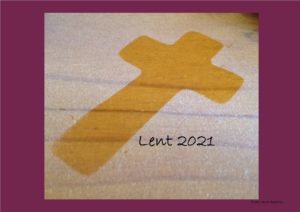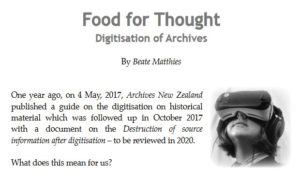It is now almost exactly four years since Covid-19 reached Europe and spread through the world.
I remember how historians then said that most pandemics had lasted for two to three years. Two to three years! This time sounded so incredibly long and far away.
Here we are now, four years later, and we are apparently in another Covid wave with about 800 new cases reported in New Zealand every week.
Four years ago, Aotearoa New Zealand was trying to stay Covid-free. We were in lockdowns, stayed in trusted bubbles and when we went out, we tried to avoid any more contact than necessary. This time was hard for all – especially for those who were living on their own without any family members or close friends in their immediate neighbourhood.
Trust was extremely important. Did you trust the person you were talking to? Did you trust the news about the Covid cases? Did you trust the health specialists? Did you trust the politicians?
Most people behaved according to their level of trust towards certain groups. If you trusted one ‘camp’ of health officials, you avoided contact with people who were not vaccinated. If you trusted the other ‘camp’ of health officials, you avoided vaccinations and ignored the pandemic. Full stop.
Either you were vaccinated or not. There was no in-between. The consequences were obvious: division, (mis)trust and (mis)information among friends, families and societies. I believe that this divisiveness further contributed to the wave of autocratic systems around the world. Many people were confused. They didn’t know whom to believe. They craved for a father-figure they could trust. A ‘super’ father who was human and visible and would lead them with strength and power through the jungle of information, news, warnings and messages. If you could trust this one leader, there was nothing to worry about.
It was in this kind of atmosphere that I started reading the book ‘Mother Tongue’ by the New Zealand author Joan Rosier-Jones.
The book describes the lives of a group of people living in a dictatorship. The dictatorship discriminates against people of a certain mother tongue. While one might argue that the whole book is about turning the reality around and making those who were historically victims resume to power against their former rulers, I have read the book in the context of my upbringing close to the border that separated the Federal Republic of Germany and the German Democratic Republic, the GDR. In the GDR the people were not free to move or speak if they didn’t agree with their rulers. They were certainly not allowed to just leave the country.
So, when I read ‘Mother Tongue’, my focus was on the dictatorship, on the lack of freedom and the omnipresent fear.
The group of people who are the protagonists in the story are sharing an urban guesthouse and due to their fear of speaking their mother tongue, they avoid going outside, being seen, being followed. They hardly trust themselves, but they certainly don’t trust anybody beyond their bubble.
In the description of the story on the back cover of the book the situation is summarised perfectly: “They are all as much victims of their own fears as they are of the dictatorship they live under, until one day a knock at the door changes everything”.
There was no knock on the door for us in 2020 or 2021. Our lockdowns eventually ended. However, the end of the lockdowns was not accompanied with a victory celebration. The lockdowns ended, but for many people the fear stayed. With the current waves of Covid, there are questions of why we sacrificed so much of our freedom and our lives if we are now told to accept that Covid is here to stay.
The opinions are still divided: were/are the vaccinations important? Would the consequences have been disastrous without the vaccination – especially in a relatively small country like New Zealand where there is a legendary 2-degree-relationship across the country?
We will never find out. We can speculate, look at probabilities and statistics based on science and history.
We have to live with it. Our bubbles are burst. We need to decide ourselves what precautions we want to take. There is no strong ‘know-it-all’ person, no visible human father figure who is strong enough to win over a pandemic.
The history has shown that dictators first and foremost acted for their own benefit. Dictators take decisions within their circle of loyalists. While a strong leader might sound good, this leader is only good to you while you are on their side. Unfortunately, most dictatorships prefer silencing their opponents rather than letting them go.
The fear of Covid might still be alive, but we need to remember that we do live in a democracy where we are not powerless. We can decide what to read, what language we speak, what religion we practice and with whom we want to communicate and share our thoughts. We can submit our thoughts on Bills to the Government without the fear of retribution.
Democracy means that we have to learn constantly, use a variety of sources and media to form our opinions. It is hard work, it is vulnerable to people who abuse it, it constantly needs checks and balances, but as long as power is controlled in a democratic and respectful manner, this is the best political system we have available.
Our freedom is as precious as our neighbour’s freedom, and we need to protect it – against all odds.
– BM –



